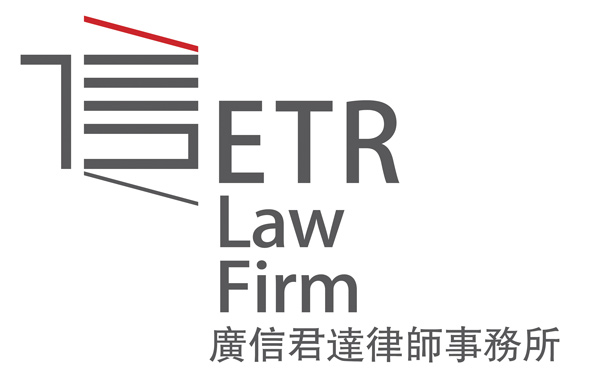The Arrangement on Reciprocal Recognition and Enforcement of Judgments in Civil and Commercial Matters by the Courts of the Mainland and of the Hong Kong Special Administrative Region and Hong Kong’s Mainland Judgments in Civil and Commercial Matters (Reciprocal Enforcement) Ordinance came into effect on 29 January 2024, replacing the Arrangement on Reciprocal Enforcement of Judgments in Civil and Commercial Matters by the Courts of the Mainland and of the Hong Kong Special Administrative Region.
HK recognition, enforcement

Senior partner
ETR Law Firm
Exclusive jurisdiction restriction removed. Under the previous arrangement, mutual recognition and enforcement of judgments required a written agreement designating the exclusive jurisdiction of mainland or Hong Kong courts. In practice, disputes arose due to the absence of clear agreements on jurisdiction for foreign-related contracts. The new arrangement eliminates this restriction, substantially reducing such disputes.
Mainland administrative litigations cannot apply for recognition and enforcement. The new arrangement applies to commercial and civil cases. Hong Kong only distinguishes between criminal and civil cases, not administrative cases, so judgments on mainland administrative litigations are not applicable.
Parallel litigation, repeated litigation will decrease. Parties cannot use parallel litigation to avoid enforcing judgments in one jurisdiction, nor can they initiate new lawsuits or reapply for recognition and enforcement for the same dispute.
Interim measures cannot be requested for ongoing litigation. Hong Kong courts cannot directly recognise and enforce interim measures issued by mainland courts for ongoing civil and commercial litigations.
Distinct remedies in recognition and enforcement exist. If a mainland court issues a recognition and enforcement order and the parties disagree, they can seek reconsideration from a people’s court. If issued by a Hong Kong court, they can appeal under Hong Kong law.
Application procedure
Types of cases. Mainland judgments seeking recognition and enforcement by Hong Kong courts must be the following:
- Civil or commercial cases under both mainland and Hong Kong law;
- Second-instance judgments, first-instance judgments not appealable by law, or first-instance judgments with elapsed appeal periods, as well as judgments rendered under judicial supervision procedures;
- Judgments made on or after 29 January 2024 that are eligible for application under the new arrangement; and
- Judgments that include an order to pay money, and within two years preceding the application date there has been non-compliance with the above-mentioned order with no remedy made until the application date.
Judgments on the following matters are excluded: maintenance, support between siblings, dissolution of adoption, guardianship of adults, post-divorce damages liability or cohabitation property disputes; inheritance, estate management or distribution; infringement of invention patents or utility model patents adjudicated by mainland courts or cases concerning standard-essential patent licensing fees adjudicated by mainland and Hong Kong courts; marine environmental pollution, maritime claims limitation, emergency towing and rescue, vessel priority or passenger transportation; bankruptcy (liquidation); determination of voter qualifications, declaration of natural person disappearance or death, or determination of natural person limited or without capacity for civil conduct; confirmation of effectiveness of arbitration agreements or annulment of arbitral awards; recognition and enforcement of judgments or arbitral awards from other countries or regions.
Application registration procedure
The applicant should file the application with the Court of First Instance in Hong Kong and submit the following: application form; judgment copy stamped by the court that made the effective judgment; certificate issued by court that made the effective judgment, proving that it is effective and, if the judgment has an enforcement content, should also prove it can be enforced in original trial court area; for a default judgment, a document proving that parties have been legally summoned, except for cases where judgment has clearly stated this or absent party has acknowledged and applied for enforcement; if applicant is natural person, a copy of the identification document; and if applicant is legal person or other organisation, copy of registration certificate and identification document of legal representative or principal person in charge.
Legal effects after application
Successful registration. If application is registered, it will be considered that the Court of First Instance in Hong Kong has jurisdiction over the judgment, and the judgment will be deemed as issued by the court on the registration date. Alternatively, legal proceedings may be initiated to enforce the judgment.
Termination or suspension. If a mainland court decides to review a judgment that has been made, the Hong Kong court will suspend the recognition and enforcement procedure after verification. After the review, if the original judgment is upheld in whole or in part, the recognition and enforcement procedure will be resumed; if it is completely changed, the recognition and enforcement procedure will be terminated.
Non-recognition and enforcement. If the respondent provides evidence proving any of the following situations, the requested court shall not recognise and enforce the judgment after verification; the jurisdiction of the original court does not comply with the provisions of article 11 of the new arrangement; according to the law of the original court area, the respondent was not legally summoned, or although legally summoned the respondent did not have a reasonable opportunity to state his or her case; the judgment was obtained by fraud; after the requested court accepted the relevant lawsuit, the original court accepted a lawsuit on the same dispute and made a judgment; the requested court has already made a judgment on the same dispute, or recognised and enforced a judgment made by another country or region on the same dispute; or the respondent has made an arbitral award on the same dispute, or recognised and enforced an arbitration award made by another country or region on the same dispute.
If the mainland court believes that enforcing a Hong Kong judgment violates the basic principles of mainland law or public interest, or if the Hong Kong court believes that enforcing a mainland court judgment obviously violates the basic principles of Hong Kong law or public policy, recognition and enforcement shall not be granted.
Liang Muzhou is a senior partner at ETR Law Firm. Yang Zibo and Zeng Shiyuan, paralegals at ETR Law Firm, also contributed to this article

No. 6 Zhujiang Dong Road
Guangzhou 510623, China
Tel: +86 20 3718 1333
Fax: +86 20 3718 1388
E-mail: etr@etrlawfirm.com





















